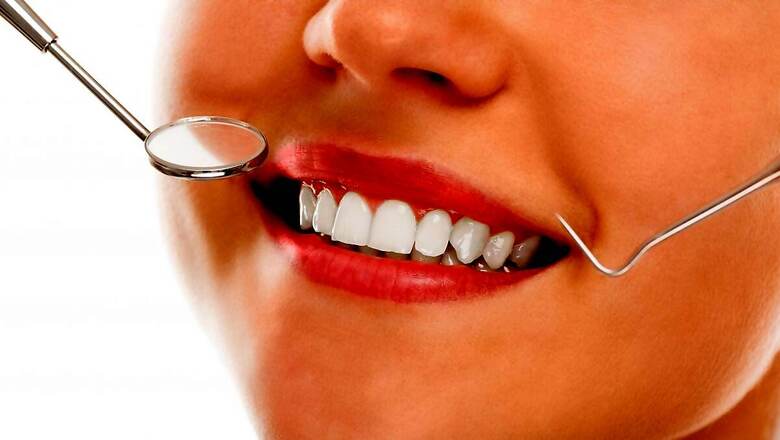
views
Bad breath, also known as halitosis, can be a source of embarrassment and social isolation. It can be caused by a variety of factors, including poor oral hygiene, certain foods and drinks, smoking, and underlying health conditions.
In addition to maintaining good oral hygiene, there are several lifestyle changes you can make to prevent bad breath. These include avoiding foods and drinks that are known to cause bad breath, such as garlic, onions, and alcohol, and quitting smoking. Drinking plenty of water can also help keep your mouth moist and wash away food particles and bacteria that can cause bad breath.
By taking proactive steps to prevent bad breath, you can improve your oral health. Dr. Bhumika Madan, Senior Consultant, Dentistry, Aakash Healthcare, New Delhi discusses how can one prevent bad breath and boost your confidence in social situations.
How can one prevent bad breath?
Bad breath is one of those issues which could be challenging to address. Furthermore, it can be challenging to assess your own breath, so although some individuals may be convinced that they have bad breath although they don’t, others may be blissfully unaware of their bad breath.
Fixing bad breath does not have to be a scary or embarrassing process. In fact, it is frequently as easy as adopting a few healthy habits and prioritising self-care. With that in mind, let us look at some of the major causes of bad breath and solutions for curing it for good.
Possible reasons behind foul breath
Many distinct factors might contribute to bad breath (often known as Halitosis.)
Sometimes, the cause is as straightforward as having bad oral health. It can also be brought on by illnesses in the mouth, nose, or throat, side effects from drugs, or both. In addition to some cancers, metabolic problems, and gastroesophageal reflux disease, other health issues can also cause bad breath (also known as GERD).
Moreover, consuming tobacco products and smoking can leave your mouth smelling unpleasant. Another significant factor is dry mouth; saliva naturally cleans your mouth by removing any particles that can cause an unpleasant odour. If you do not have enough saliva in your mouth, it could be the cause of your bad breath, whether it’s due to alcohol consumption, medication, or other medical conditions.
Plaque build-up brought on by poor dental and oral hygiene might result in gingivitis. Periodontal disease, commonly known as gum disease or periodontitis, which is a known cause of bad breath.
Home and dietary remedies for breath freshening
- Discovering what causes foul breath for you is a necessary step before figuring out how to eliminate it. Yet, a one-time solution is rarely enough to treat foul breath. It takes regular self-care to prevent bad breath when it is brought on by inadequate oral hygiene or a poor diet.
- Advice on how to permanently get rid of foul breath can be found in abundance online. From baking soda or pineapple to homemade vinegar mouth rinses, there is no shortage of online remedies for treating foul breath.
- There isn’t a magic remedy that can cure all forms of foul breath, even though some of these may help for a temporary run.
- Using a toothbrush and fluoride toothpaste to brush your teeth twice a day (preferably after eating), using a tongue scraper to clean the back of your tongue, purchasing fresh toothbrushes regularly, flossing between your teeth daily and attending routine examinations with a trained dental practitioner.
- Certain foods may cause oral problems including gum disease and tooth decay in addition to possessing strong scents. Some meals to stay away from if you have foul breath include, sugary sports drinks, alcohol, sodas, coffee, hard candies, garlic, and onion.
- If you do not want to cut out specific foods from your diet, brush your teeth right away to remove any leftover food. Consider substituting sugar-free gum for sweets and other sweet treats if you have a sweet tooth.
- The thumb rule to get rid of foul breath is to drink lots of water, since dry mouth can contribute to foul breath, drinking water can ensure that your salivary glands are functioning properly.
- Better dental hygiene can eliminate most cases of foul breath, but occasionally it can be brought on by a serious medical condition. Speak to your dentist or healthcare provider about available treatments if you are bothered by persistent foul breath.
Read all the Latest Lifestyle News here




















Comments
0 comment